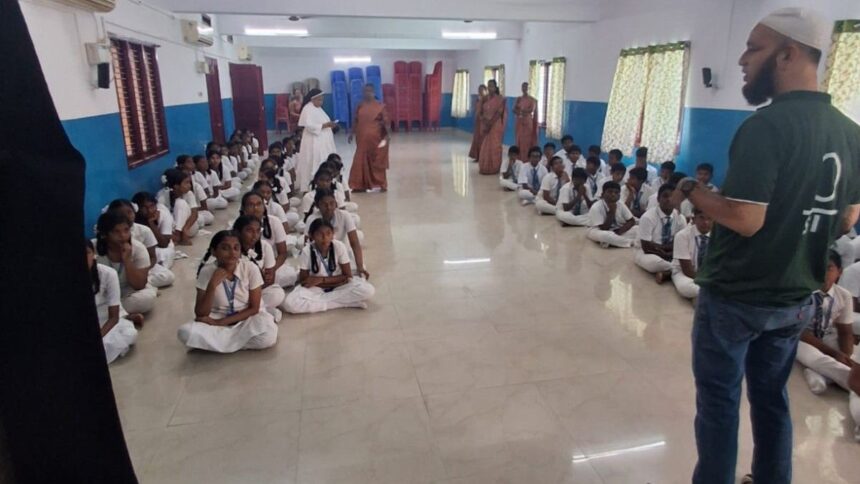Date: 6th August 2025
Location: St. Mary’s Matriculation School, ICF Colony, Chennai
The ODOC Project has taken a significant step forward in its mission to fight child malnutrition through early detection and targeted nutritional intervention. Marking an important milestone, the first school-based assessment was successfully conducted at St. Mary’s Matriculation School, ICF Colony, Chennai. This initiative reflects the growing momentum of the project and its commitment to safeguarding children’s health and well-being.
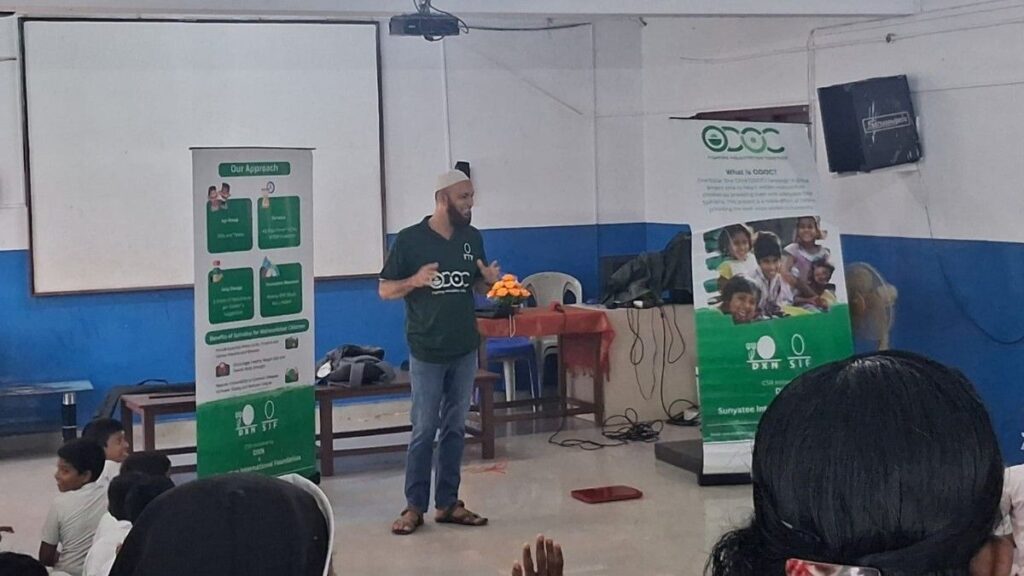
Screening and Key Findings
During this initial assessment, the ODOC project team screened 55 children, carefully evaluating their Body Mass Index (BMI) in alignment with WHO growth standards. The assessment revealed that 31 children were undernourished and required immediate nutritional support. This data not only highlighted the pressing need for timely intervention but also underlined the importance of routine monitoring in identifying health risks among school-going children.
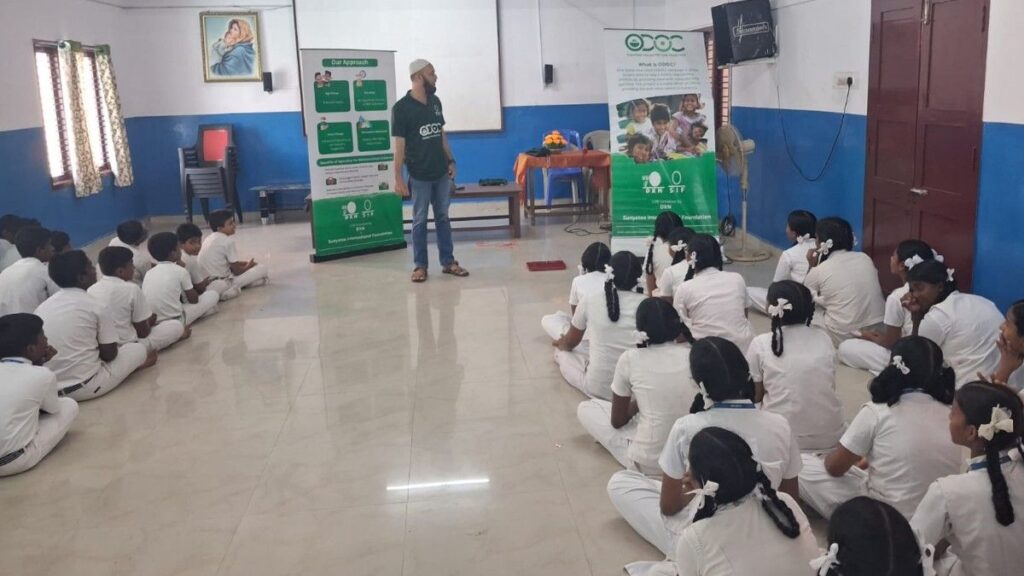
Intervention Through Spirulina Supplementation by First Assessment
To address the nutritional gaps, the identified children were provided with DXN Spirulina, a highly nutrient-dense supplement rich in protein, iron, vitamins, and essential micronutrients. Spirulina has been recognized globally as a safe and effective superfood that enhances immunity, supports growth, and combats the effects of malnutrition.
The project team also offered clear instructions on the correct intake process of Spirulina, ensuring that students and teachers understood how to maximize its benefits. This step was crucial in encouraging consistent and proper consumption, thereby enhancing the supplement’s long-term impact.
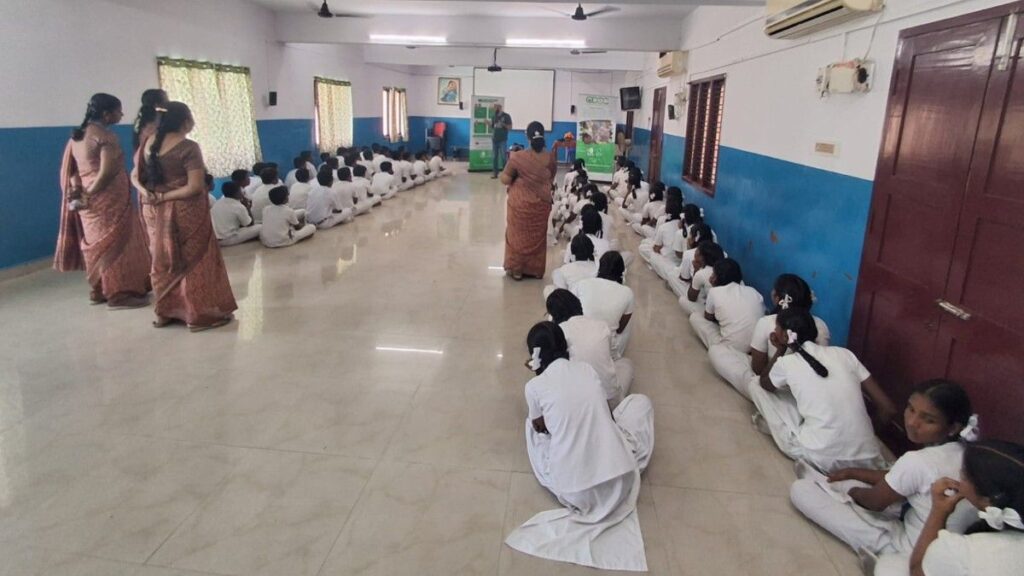
Awareness and Capacity Building
Alongside distribution, the team conducted an interactive awareness session with the children. This session focused on:
- The risks and impact of undernourishment on growth and learning.
- The importance of balanced nutrition for physical and mental well-being.
- The benefits of Spirulina as a natural, safe, and effective nutritional aid.
By engaging students directly, the session empowered them with knowledge to take ownership of their health, adopt better eating habits, and develop awareness about long-term wellness.
Collaboration with School Leadership
The success of this initiative was made possible through the active support of the school principal, Sister Elvin, whose cooperation and encouragement ensured a smooth and impactful rollout. Her leadership in facilitating the process reflects the vital role schools play in addressing malnutrition and creating healthier futures for children.
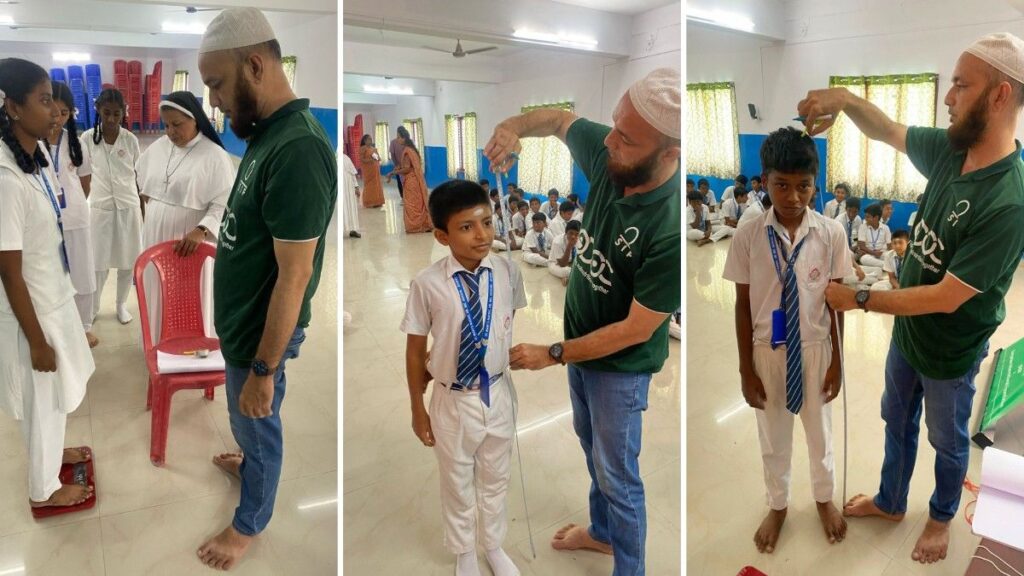
Conclusion: The first ODOC assessment
The first ODOC assessment at St. Mary’s School marks a pivotal achievement in the project’s journey. By successfully identifying undernourished children, providing immediate nutritional supplementation, and raising awareness about balanced diets, the program has laid the foundation for sustainable impact.
This collaborative effort between the ODOC team and school leadership not only addresses immediate nutritional needs but also builds a culture of awareness, care, and responsibility. Moving forward, continued assessments and interventions will further strengthen the fight against child malnutrition, ensuring that every child has the opportunity to grow, learn, and thrive.

